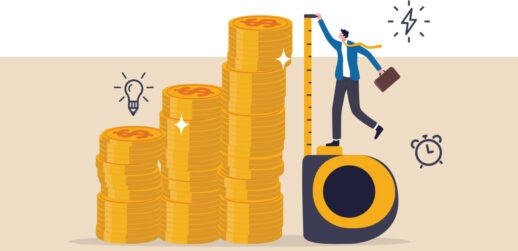Name: Howard Givner
Founder & CEO, Event Leadership Institute
Last year you predicted the road back to meeting might be bumpy and that it could be 2023 before things are back to “normal.” Were you surprised by the way it ultimately played out?
“Bumpy” seems like a pretty good description of the road back, doesn’t it? In our State of the Industry webinar last January, I predicted recovery wouldn’t start until Q4 2021, and that there was a large anti-vax population in the U.S which could create problems and prolong the pandemic. I think both of those have proven pretty accurate. What I didn’t predict was how political some state governors would get in banning mask mandates and proof of vaccination, which has created unnecessary confusion for planners.
As for “normal,” I think we’re still figuring out what that means, and there are two major variables in play here.
1. Companies are wrestling with how much to push employees to come back to the office vs. work remotely. This will have a huge impact on events, diminishing some traditional events, while creating a whole slew of new ones to weave an increasingly remote workforce into the company culture.
2. Planners are grappling with which events should be in person, virtual or hybrid. And if hybrid, do both audiences need to have the same content? Should they be charged different prices? Does the networking need to be between or within audiences?
What’s been the biggest learning curve for traditional meeting planners to master virtual content progams?
There’s a slice of the event community that views virtual events as a temporary Band-Aid to hold us over until they can go back to planning in-person events. Some of this is denial, but some of it is about people just not wanting to get out of the comfort zone they’ve been in for so long. Those who leaned in early and adapted have thrived.
For them, the biggest learning curve has been coaching their speakers on the differences between theatrical (in person) and cinematic (virtual) presenting, which range from stark to subtle.
More: 5 Habits to Break in Your Online Events
ELI is developing a microcourse that planners can send their speakers to, which will provide insights on presenting to each audience, along with tips on how different people learn, best practices for slides, and other skills.
Do you think we are better prepared if another disruption happens in the future?
I’d like to think so, but it depends on what the disruption is and how soon it happens. On the one hand, we should all be much nimbler in reacting to change. On the other hand, as Churchill said, “Generals are always prepared to fight the last war,” meaning that we will 100 percent know what to do when the next pandemic hits, but the next disruption will likely be something totally different. Perhaps it’ll be a cybersecurity issue or sweeping changes in privacy laws, or we’ll be slow to react to how artificial intelligence or virtual reality will transform our industry. The pace of change is only quickening, and disruptions will be hitting us faster than ever. The key is to build resilience and forward-thinking into our jobs, events and businesses, and make that mindset part of our standard operating procedures.
What lessons from the last 18 months will make meetings better in the future?
Ah, this is my favorite part. I think there are three key points here.
1. The stoppage of all in-person events during the pandemic has brought intense focus on the value of those events, or lack thereof. In many cases, clients (or other event stakeholders) have realized they can conduct business just fine without an annual event that they’ve held (or attended or exhibited at) every year, almost on auto-pilot. Those events never really proved their ROI, and now they’re in trouble. However, there are others who now know they need those events more than they ever realized. In those cases, the ROI was proven by taking the event away and seeing what was lost. In the future, all events, virtual or in-person, will require greater ROI scrutiny, and that discipline will be a big net-positive change.
2. The rise of virtual events as a new delivery medium is huge. It’s the equivalent of how streaming opened an entirely new revenue and distribution avenue for people who make entertainment.
3. Finally, all the flux and uncertainty we’ve been through, and are still going through, makes the need for a trusted event advisor all the more critical. It will be easier to prove our value in this more complex and changing landscape.





